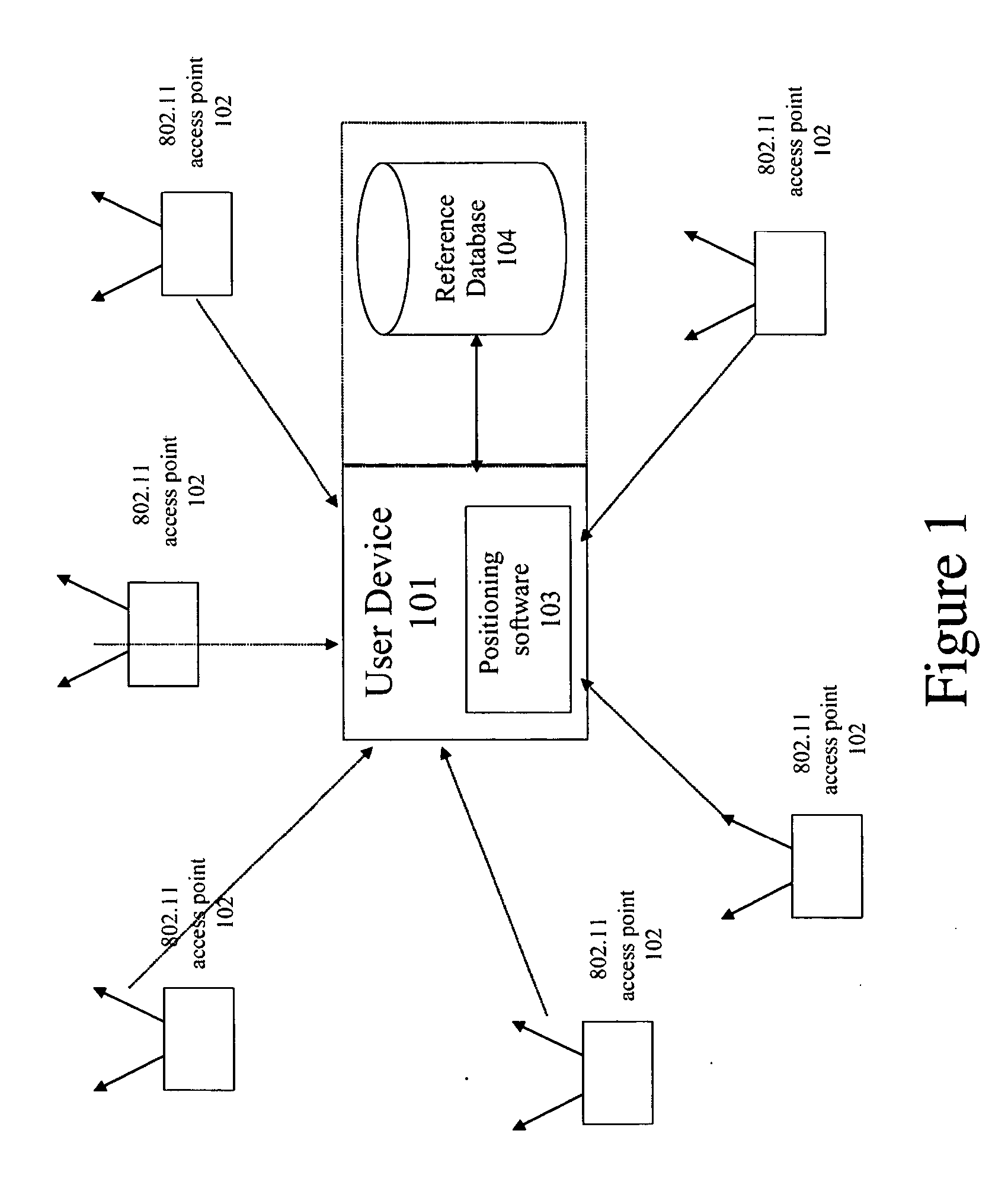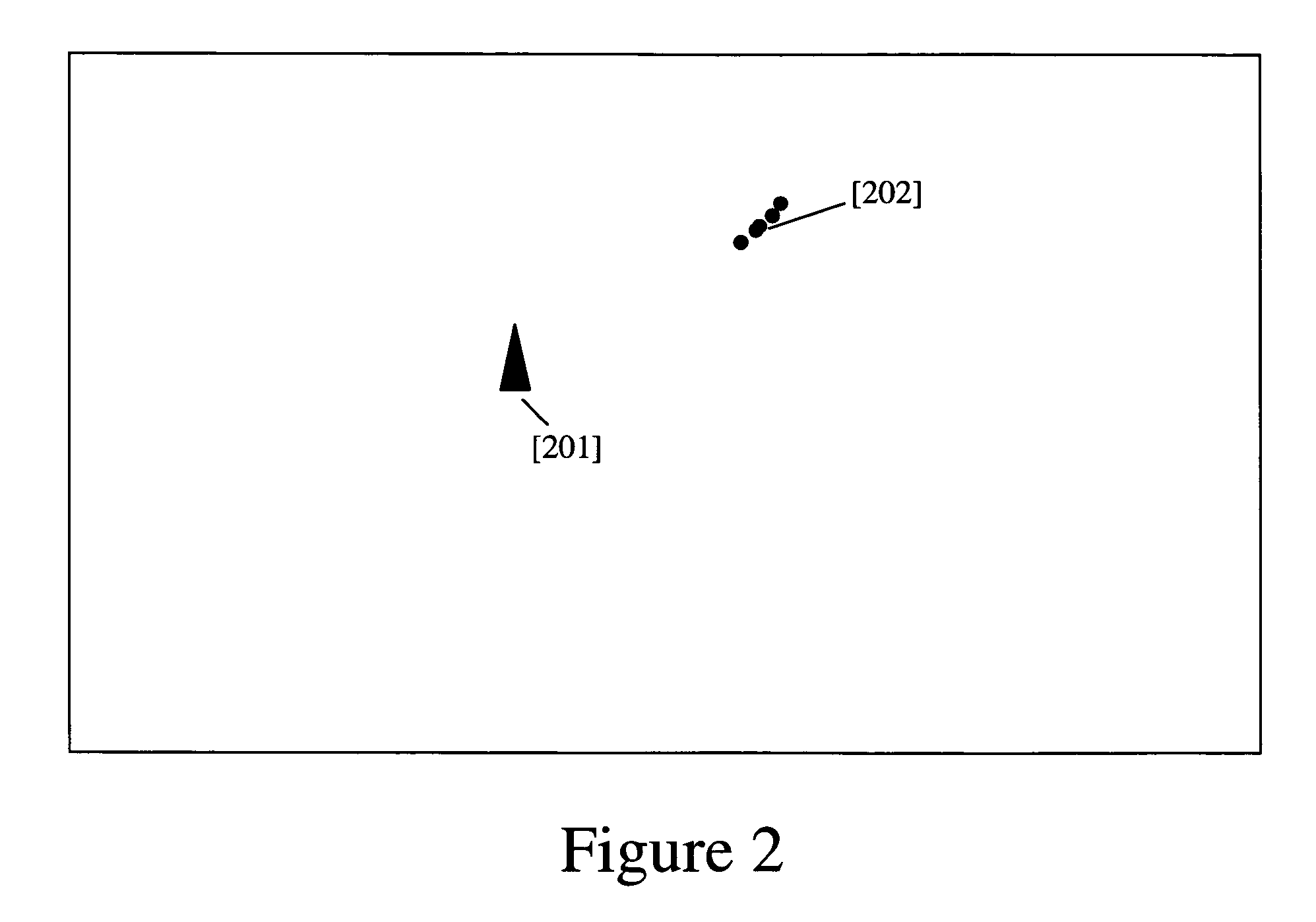Methods of filtering and determining cofidence factors for reference points for use in triangulation systems based on Wi-Fi access points
a technology of cofidence factor and reference point, applied in the field of positioning system, can solve the problems of ineffective wide-area deployment, inability to conduct the kind of detailed site survey required across an entire city, and high accuracy requirements for these use cases
- Summary
- Abstract
- Description
- Claims
- Application Information
AI Technical Summary
Benefits of technology
Problems solved by technology
Method used
Image
Examples
Embodiment Construction
[0028] Embodiments of the invention provide methods and systems to define a quality metric for each WLAN access point (AP) in a WLAN based positioning system. The quality metric of a WLAN access point may be used as an indicator of the expected error of estimation of position, speed of travel, and direction of travel of a user based on that WLAN access point. Quantifying expected error of estimation based on a given WLAN access point can be used to increase the accuracy of overall estimation by giving more weight to more reliable WLAN access points, and it can also be used to quantify expected error of the final estimation of position, speed of travel and direction of travel by considering the quality of an aggregate of the WLAN access points in range.
[0029] Embodiments of the present invention build on techniques, systems and methods disclosed in earlier filed applications, including but not limited to U.S. patent application Ser. No. 11 / 261,848, entitled Location Beacon Database,...
PUM
 Login to View More
Login to View More Abstract
Description
Claims
Application Information
 Login to View More
Login to View More - R&D
- Intellectual Property
- Life Sciences
- Materials
- Tech Scout
- Unparalleled Data Quality
- Higher Quality Content
- 60% Fewer Hallucinations
Browse by: Latest US Patents, China's latest patents, Technical Efficacy Thesaurus, Application Domain, Technology Topic, Popular Technical Reports.
© 2025 PatSnap. All rights reserved.Legal|Privacy policy|Modern Slavery Act Transparency Statement|Sitemap|About US| Contact US: help@patsnap.com



